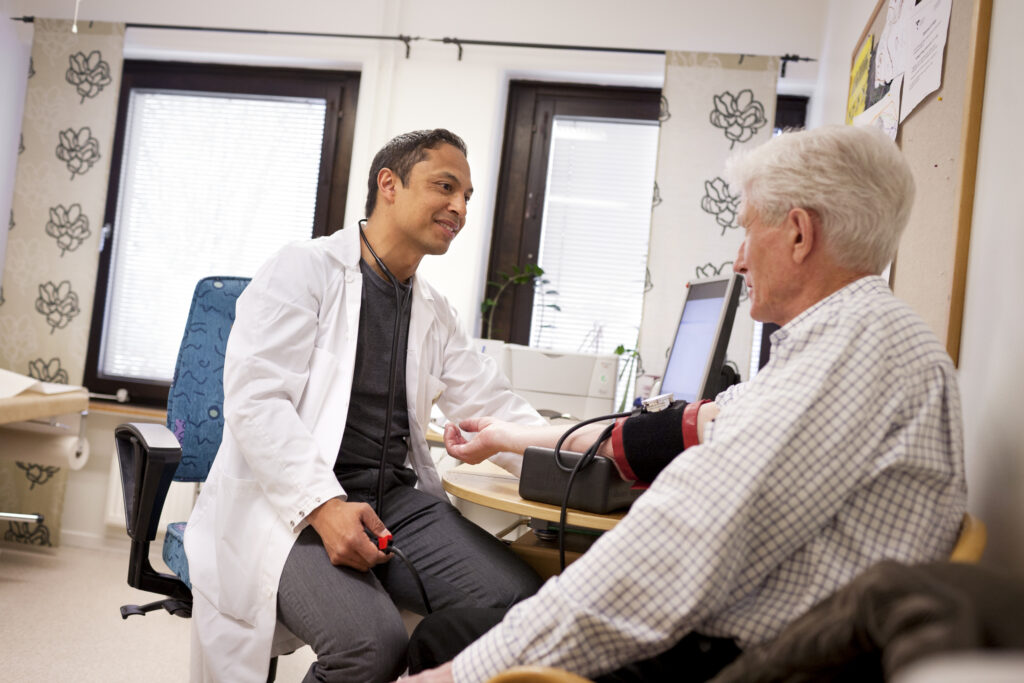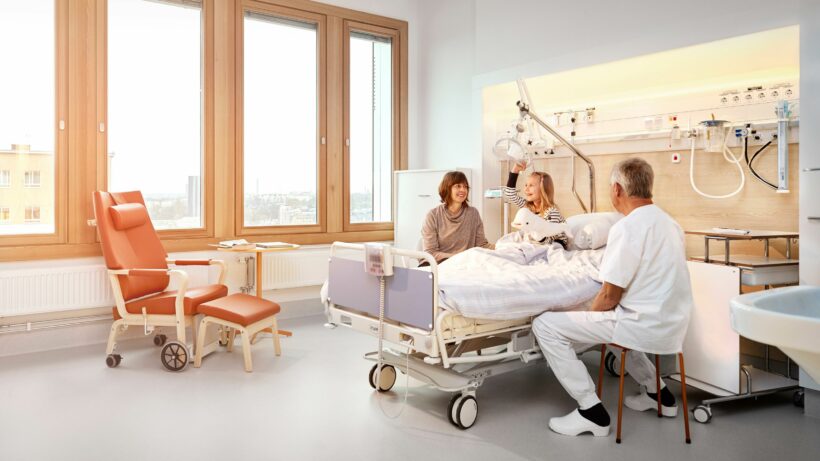Sweden stands as a global role model in work culture, especially in its healthcare system. Known for prioritizing work-life balance, employee well-being, and gender equality, Sweden’s healthcare sector exemplifies these values, setting a high standard for global healthcare systems.

Work-Life Balance in Healthcare In Sweden, healthcare professionals, from doctors to nurses, adhere to the principle of ‘lagom’ – a balance that ensures neither too much nor too little work. This philosophy is evident in their 40-hour workweeks, which is quite balanced compared to many other countries.
This approach is not just beneficial for the professionals; it also translates into more focused and attentive patient care. The Swedish healthcare system also emphasizes the importance of mental health and stress management, providing regular breaks and a supportive work environment that mitigates burnout and maintains high standards of care.

Comprehensive Employee Benefits Sweden is known for its generous employee benefits, and the healthcare sector is no exception. Healthcare workers are entitled to substantial parental leave – up to 480 days shared between parents, with 90 days reserved exclusively for each parent. This policy is particularly impactful in a demanding field like healthcare, where work-life balance is crucial. In addition, they receive 25 vacation days annually, and there’s a comprehensive sick leave policy, ensuring that healthcare workers are well-supported during periods of illness or family needs.
Championing Gender Equality Sweden’s healthcare sector is at the forefront of promoting gender equality. Equal pay for equal work is a strongly enforced standard, and substantial parental leave is available for both mothers and fathers. This egalitarian approach has led to a more diverse and inclusive work environment, essential in a field that requires empathy and diverse perspectives.

A Collaborative Work Environment The flat organizational structure in Swedish hospitals and clinics encourages open communication and collaboration, crucial in healthcare. The emphasis on teamwork and consensus over hierarchy enables swift, efficient patient care and fosters an environment conducive to innovation. This structure ensures that ideas and solutions can come from any level within the organization, promoting a sense of ownership and responsibility among all staff members.

Fika: A Unique Tradition The tradition of ‘Fika’, a Swedish coffee break, is a cultural staple in the healthcare sector. It’s a time for healthcare professionals to pause from their hectic schedules, socialize, and rejuvenate. This practice not only enhances job satisfaction but also contributes to productivity and a positive work environment in a high-stress field like healthcare.
Sustainability and Ethical Practices Swedish healthcare institutions are leaders in sustainability and corporate social responsibility. Hospitals and clinics focus on reducing their environmental impact through waste reduction, energy efficiency, and sustainable procurement practices. Moreover, there’s a strong emphasis on ethical patient care and data security, reflecting Sweden’s overall values of responsibility and sustainability.

The Swedish healthcare work culture, with its focus on balance, equality, and collaboration, sets a global standard for employee well-being and efficiency. In a sector as critical as healthcare, these principles are not just ideals but everyday practices that contribute to the high quality of care and job satisfaction. As countries around the world grapple with healthcare challenges, Sweden’s model offers valuable insights into creating a work environment that benefits both healthcare professionals and patients.

















